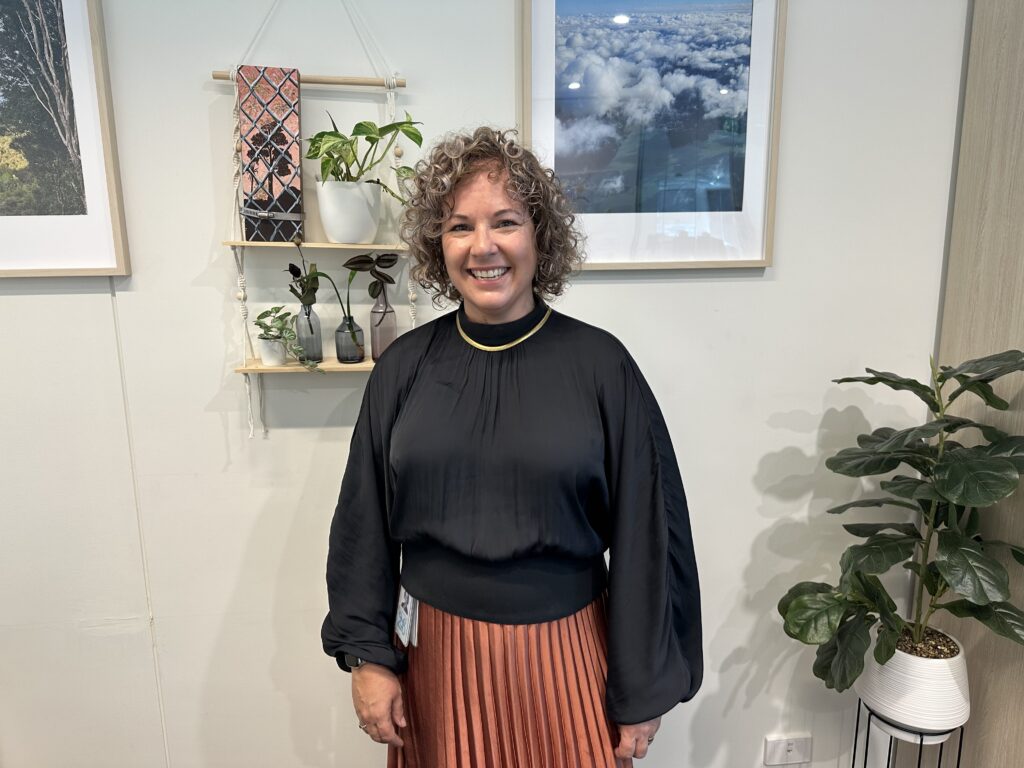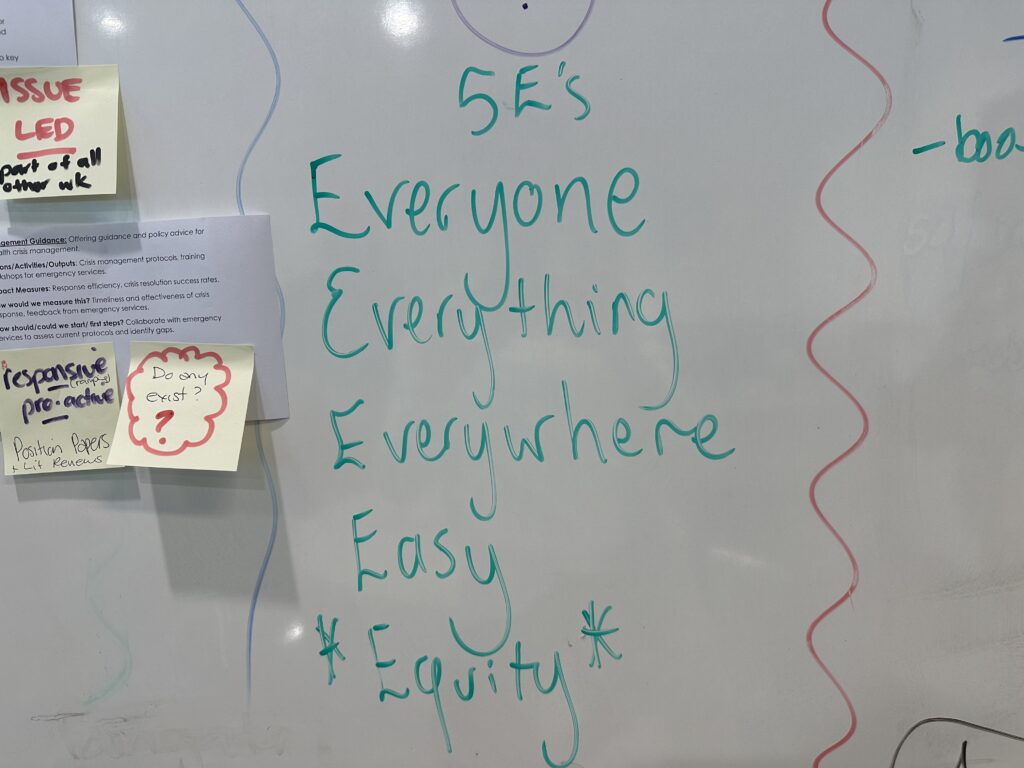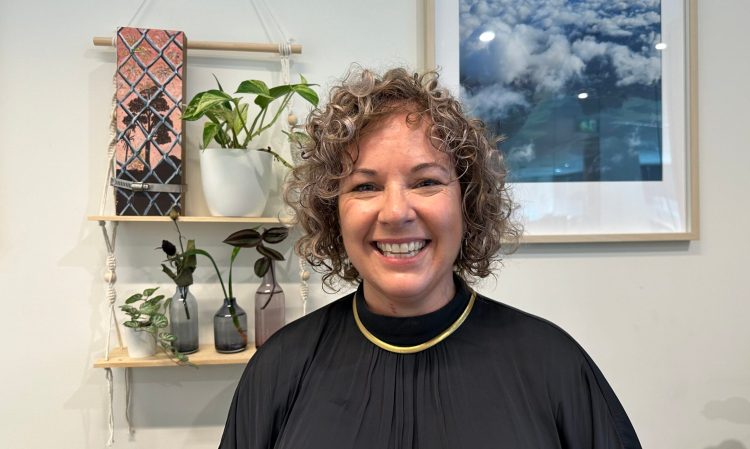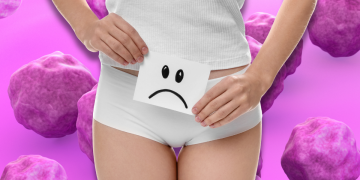Our Mental Health Commissioner has big ideas about how to tackle prejudice and discrimination associated with mental health. We sat down with Taimi Allan to find out how she’s shaking things up for the better.
Taimi Allan grew up in SA and experienced mental health challenges as a young woman. Her recovery inspired a 20-year mental health career in New Zealand, where her award-winning work and passionate advocacy as a “wellbeing warrior” has already driven plenty of positive change.
Now this global mental health leader has brought her knowledge and experience back home. Since last 30 October 2023, Taimi has taken the helm as full-time Mental Health Commissioner of South Australia, embracing the power of lived experience to reshape our state’s mental health discussions.
What does the mental health commissioner do?
Taimi is an independent advisor to the state government. She describes her role as multifaceted, involving advocacy, collaboration, and strategic planning: “It’s my responsibility to work towards enhancing mental health for all South Australians, by working with everyone who cares about it,” Taimi says. She sees her position as a bridge between lived experience and policy-making, ensuring the voices of those affected by mental health issues are heard and that by engaging with diverse stakeholders we foster cohesive mental health strategies across sectors.
What is lived experience?
In terms of mental health, lived experience “is when a person’s life trajectory is significantly derailed by mental health challenges,” says Taimi, who emphasises the transformative power of workers with lived experience in mental health support. She advocates for a broad understanding of lived experience, stressing that it can include not just severe experiences like psychosis and hospitalisation, but also more common struggles like depression and anxiety. Once recovered, workers with lived experience and the right training have unique knowledge, abilities and attributes to support others and help them navigate the healthcare system.
Breaking down barriers with openness
Taimi believes in challenging stereotypes and discrimination through openness about mental health struggles. “Sharing personal stories of recovery can dismantle the prejudice and discrimination associated with mental distress,” Taimi says “but we need to be mindful of staying safe in that sharing. Simply rolling someone out with a Lived Experience to tell their story has been known to traumatise both them, and their audiences and does nothing to break down prejudice. Instead we need to be intentional about what are we trying to change when we share our lived experience” She recounts her own mental health journey, with multiple diagnoses and hospitalisations in her teens and 20s, to show how recovery isn’t just possible, but probable. Taimi hopes that more leaders and role models will speak out about how they navigated their mental health struggles, so people understand that you can lead a fulfilling, successful life after your recovery.
Myth-busting mental distress
Taimi is calling out the misconception that mental health issues are lifelong illnesses. “Science shows that people do recover from even the most extreme mental health experiences,” she says. Taimi advocates for a more nuanced understanding of mental health, emphasising the importance of supportive environments and flexible support where people can “tap in and out” as needed to ensure their recovery stays on track.
Battling discrimination
Taimi says that while the dialogue around mental distress is becoming more open and honest, the prejudice and discrimination still lingers. Like many others who’ve recovered from an experience with mental distress, her diagnoses still haunt her all these years later. “They’re not lifelong conditions, but they are lifelong red flags,” she says. “They still come up on my file and people still judge me because of those words and those labels. For example, I can’t get life insurance.” As mental health commissioner, she hopes to change the conversation so this kind of discrimination stops.
A vision for the future: Community care
Looking forward, Taimi is optimistic about contributing to a community-driven mental health system that empowers individuals to take control of their own healing process. “Recovery is often realised through personal autonomy and the ability to make one’s own choices,” she says.
“The aim is to foster a society where mental health support is as common and accessible as any other community service. We need services where people can feel safe and supported without discrimination or barriers often associated with traditional mental health services.” Taimi Allan, SA’s Mental Health Commissioner


Alternatives to hospital
This kind of care would include more alternatives to hospitals, like the Urgent Mental Health Care Centre on Grenfell Street, or the Peer run hospital acute alternatives achieving success in New Zealand. These offer an alternative to the emergency department for people experiencing a mental health crisis, with a peer support team working alongside clinicians. Taimi would also like to see more services like Safe Haven Salisbury, a drop-in centre for people feeling distressed or overwhelmed, run by staff with their own lived experience.
The big picture solution
In the long run, addressing mental health requires a broader perspective that includes social, economic and environmental factors, not just the expansion of hospital infrastructure. “We need to look beyond just increasing hospital beds and consider the entire ecosystem affecting mental health,” says Taimi, who is an advocate for comprehensive strategies that address the root causes, including social isolation, physical health, racism and poverty.
Reimagining mental health training
Taimi is also a proponent of “guerrilla” mental health advocacy, so-called because it anonymously trains people with the knowledge, connections and resources they need to make change within the spaces they already have influence. Taimi says that this type of training has seen “amazing” changes various sectors, including the police, politics and the military.
“We need to infiltrate all areas of society with better understanding and practices around mental health,” Taimi says. This method ensures that knowledge about mental health is disseminated widely, promoting systemic change from within various industries and communities, which “snowballs over time” into a society-wide change in thinking.
A creative approach to education
Through the inaugural SA Mental Health Commissioner’s Performers Grants program, Taimi is also making mental health education entertaining, delightful, surprising and confronting (a concept she calls “edutainment”), with support for 25 Adelaide Fringe shows that addressed the topic this year. Performers used their own lived experiences to educate audiences about mental health.
The shows reached audiences of beyond 10,000 and drove positive change in the way people navigate systems, recovery and clinical practice. Audience reactions indicated over 90 per cent experienced a positive change in their attitudes to mental health and felt more empathetic towards those with lived experience. Peopled laughed and cried during the shows, but most of all they walked out changed for the better, something that often traditional mental health campaigns are not able to achieve.
“We can change attitudes and provide learning in a way that’s entertaining and memorable,” she says.
If you or anyone you know is struggling, make sure to reach out to one of the mental health services available 24/7:
LifeLine: 13 11 14
Beyond Blue: 1300 22 46 36
SA mental health services register

















